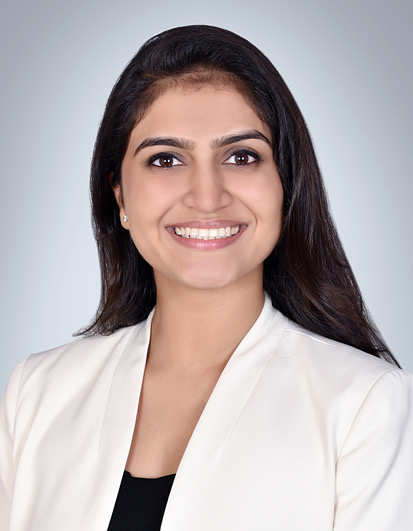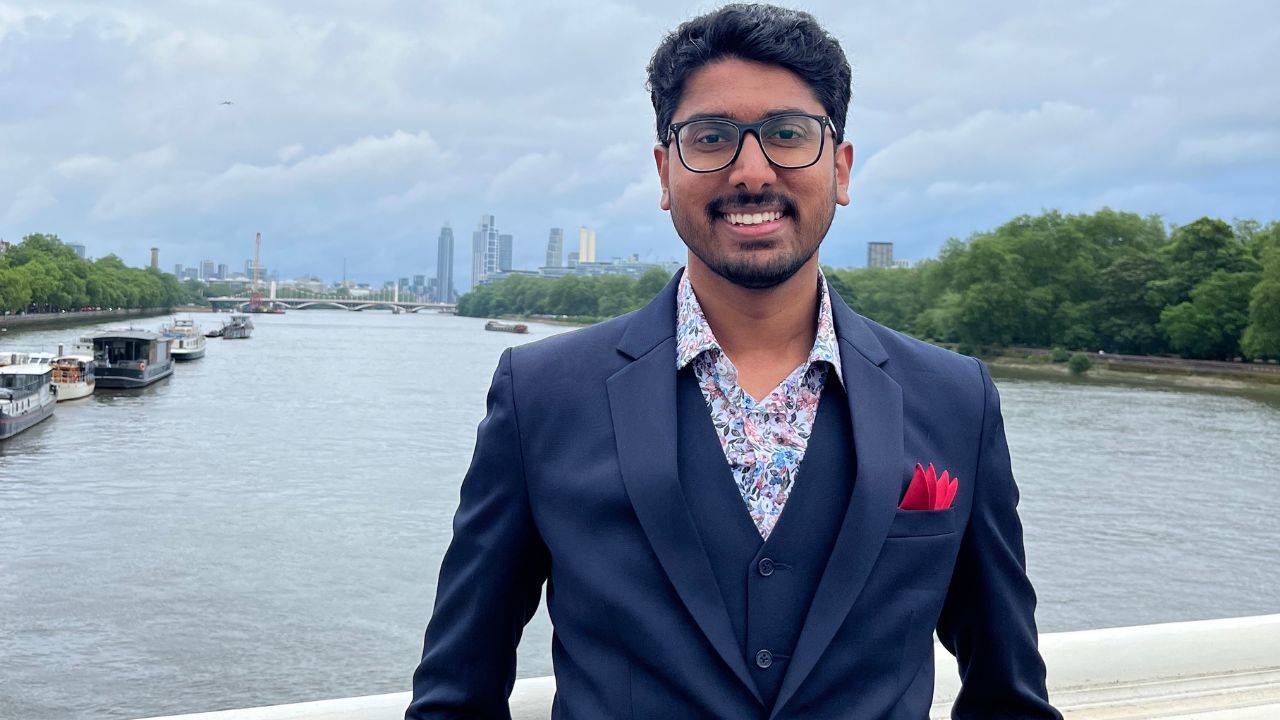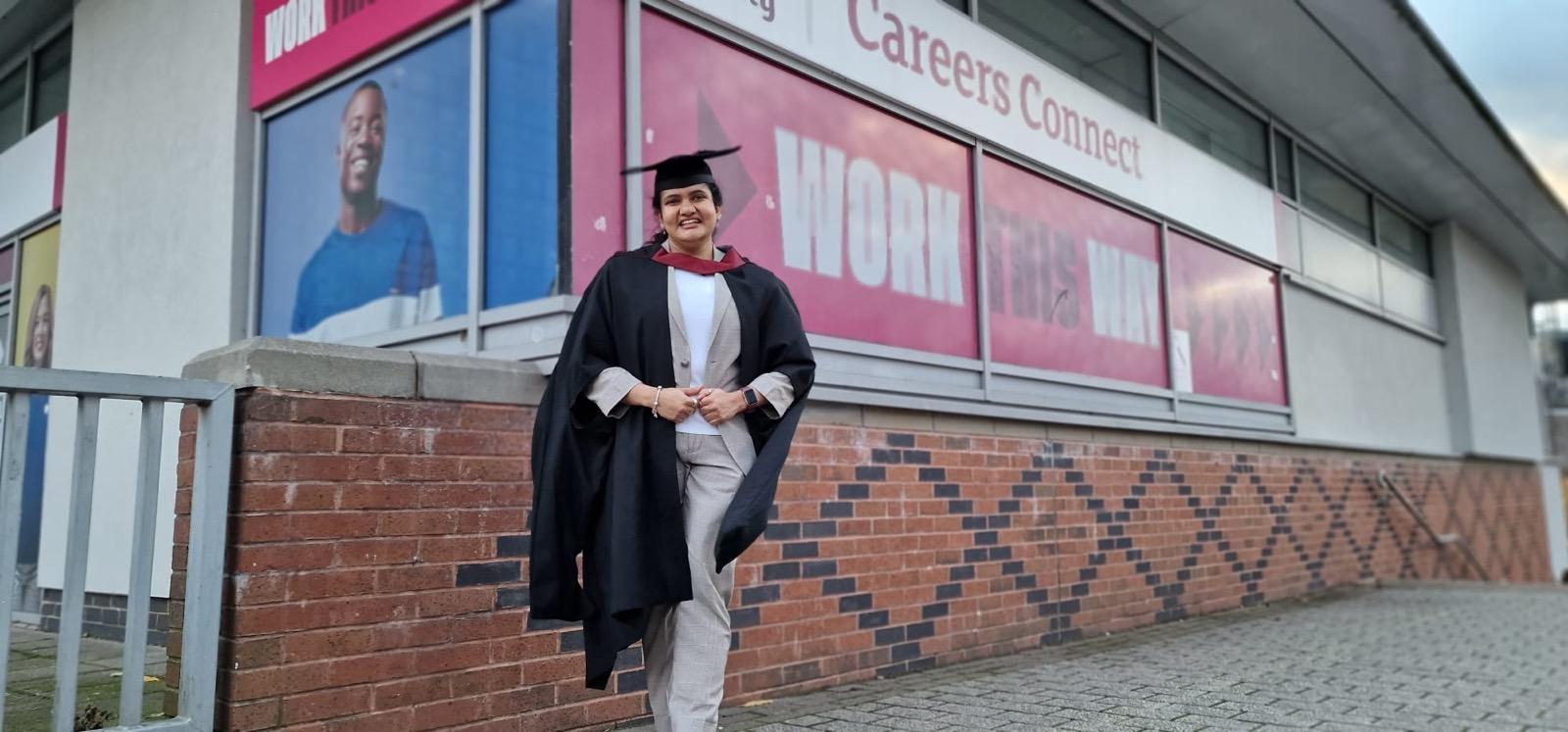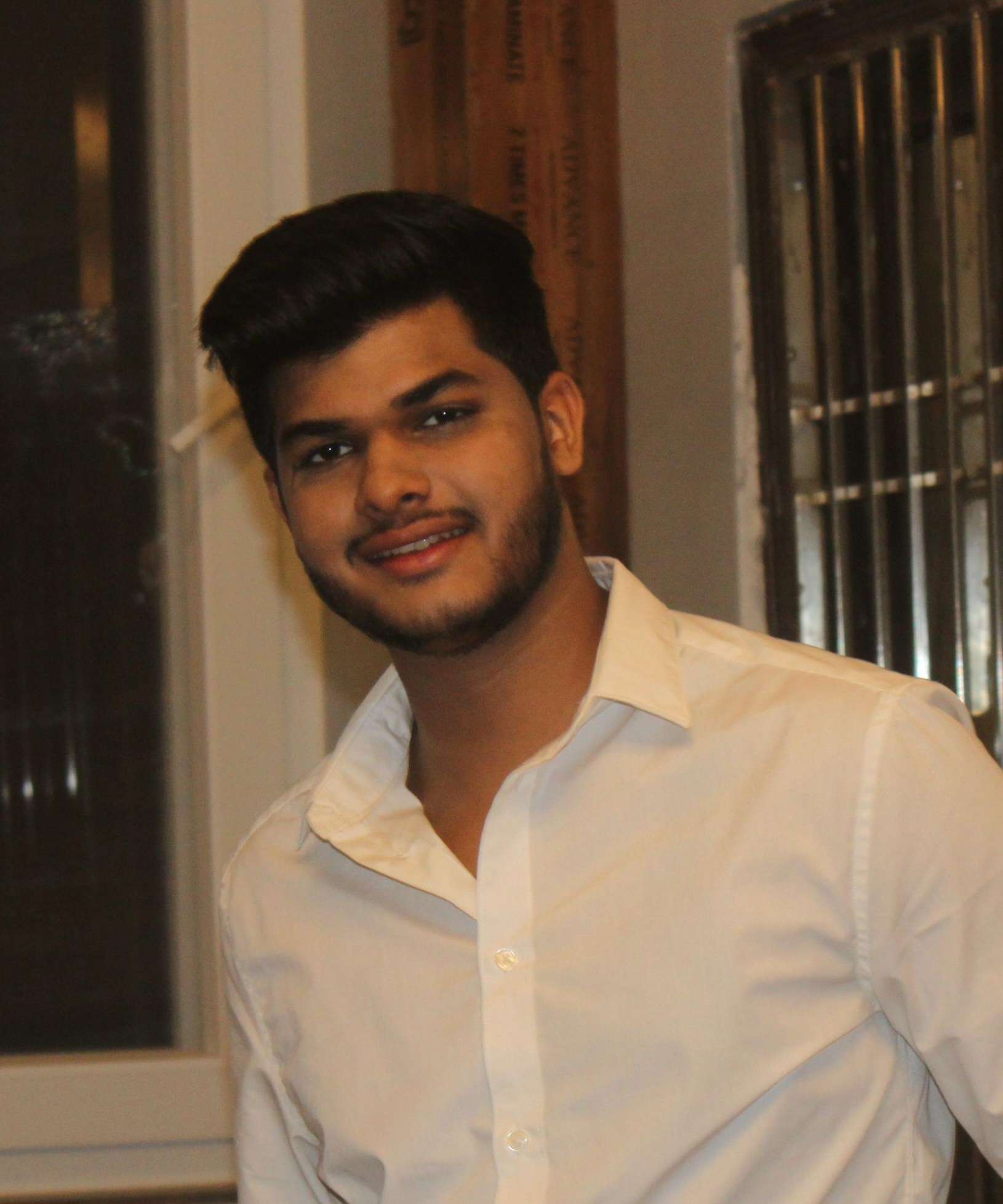Like many applicants, when seeking to enrol at business school Asmi Pillai did not limit herself geographically. After all, she hadn’t limited herself professionally either, nurturing a budding acting career alongside pursuing a Bachelor’s degree in Economics at Christ University in Bangalore.
Another thing Asmi did not place limits on was her perception of value. “I believe that true learning doesn’t only happen in the four walls of a classroom; it thrives through the richness of real-world encounters and meaningful exchanges,” she shares. With this philosophy in mind, she found herself swapping bustling cityscapes for what she describes as the “zen-like atmosphere” of Durham University Business School, located in the North East of England, surrounded by British history, wildlife and culture.

Now finishing up her Masters studies, also in Economics, Asmi reflects on what she has gained from international study beyond the degree certificate. “I chose the UK as my study destination primarily for its academic prowess, but Durham was my choice not only because of its excellent economics courses but also because it offered a holistic educational experience,” she says. The quaint English charm and history, along with the peculiar abundance of rabbits hopping around provided a different pace of life. “Durham compels one to re-evaluate all aspects of life, from academic goals to personal aspirations. This introspection is something I value deeply,” she says.
Bunnies aside, Asmi’s story is by no means unusual. According to the Graduate Management Admissions Council, whilst the popularity of Indian business schools continues to increase on a global scale (driven by increasing educational quality and arguably lower costs), so too is the number of Indian business students seeking their fortunes overseas.
Whilst the US has long been a beacon, in recent years GMAC’s Prospective Student Survey data has recorded a turning of the tide as a greater variety of global study locations grow in prominence. The UK is one of them, being the second most popular destination and seeing a steady rise in Indian applicant interest over the last decade.
Clout
But what’s driving the UK’s popularity? Academic excellence has certainly played a key role. “I was eager to learn from the best minds, and diverse cultures worldwide,” shares Khyati Aggarwal. “The UK, with its rich academic heritage and innovative approach stood out as the ideal destination to deepen my business acumen.”

Her search led her to enrolling on an MBA at Saïd Business School at the University of Oxford. The institution, renowned for its cutting-edge curriculum and prestigious global standing, offered Khyati the perfect combination of academic rigor and practical application. “One of the most significant advantages is the one-year MBA program structure,” she reflects. “This condensed timeline allows me to re-enter the job market quickly, minimizing the opportunity cost compared to the traditional two-year programs.” The promise of joining a highly diverse class was also a key benefit. “With 51% women and 97% international students from 63 different nationalities, the classroom dynamic reflects a global mosaic of perspectives and experiences.”
Sankar Venkataraman Murali agrees with Khyati’s reasonings. His own search led him to London’s Imperial College Business School, for its MSc Innovation, Entrepreneurship & Management – a decision which he calls a “no-brainer”.

“It was always at the top of my list and my dream school,” Sankar says. “At the time, [Imperial College] ranked 6th in the world (now 2nd), which spoke volumes about the quality of education it provides. Despite having offers from other leading universities with significant scholarships, I chose Imperial for its world-class reputation, the diversity of its community, and its London location, which promised greater exposure.”
Careers
London is a significant draw for international students seeking to boost their career opportunities post-graduation – indeed, employability was one of the top reasons highlighted by QS’ recent Destination UK report, for international students when making their study choices.
Those hailing from India are no exception. “I wanted to experience one of the world’s largest financial hubs,” says Ayati Mishra. “If you’re interested in a career in finance, just being in London gives you so much opportunity and exposure.”
Ayati chose King’s Business School and its MSc Economics both for its geographical location and reputation for excellence in business education. “The rankings and reviews were impressive,” she shares. “The King’s Business School MSc stood out to me because I could combine Economics and Finance. My undergraduate degree was in Economics and I had done an internship at the World Bank and I wanted to take this background into a career in Finance, so this combination aligned perfectly with my goals.” So far, she has no regrets. “Living in London has been as amazing as I hoped,” she says. “We had a cruise on the Thames for everyone in the course, which was a fantastic icebreaker. I’ll always remember that.”
Securing a job within the UK remains a challenge, with visa rules and restrictions continuing to evolve, but Ayati is confident of her prospects, bolstered by the additional support the School provides. “Studying at a renowned institution like King’s has provided a significant credential that signals value to employers, but beyond the degree the extra activities like workshops and technical skill development sessions have been incredibly beneficial in building the skills that I will need in the job. The degree gets you the job, those additional skills make you excel.”
It’s a mix that seems to work as Kings College London was ranked amongst the top 10 UK institutions producing the most employable graduates, according to the Global Employability University Ranking, published by Times Higher Education.
Sankar and Khyati also cite extra curriculars as key to boosting their employability whilst studying in the UK. “I’ve engaged in various clubs, competitions, and hackathons and attended talks, seminars, and entrepreneurial events,” says Sankar. A trip to Ghana to pitch his ideas, organised by Imperial’s Enterprise Lab has also been a highlight. “While classroom routines of lectures and assignments form the backbone of my education, the most memorable moments often happen outside the classroom,” Sankar says.
Khyati agrees, “being part of the wider Oxford community has allowed me to engage with talented undergraduate and master’s students through initiatives like 180 Degrees Consulting. Collaborating on impactful projects with a diverse group has been incredibly enriching,” she shares.
And so too has been the opportunity for further travel and networking. “The proximity to major European cities like Paris and Amsterdam also facilitates quick trips for conferences, such as the MBA Tournament (MBAT) in Paris, where I connected with peers from top B-schools across Europe,” Khyati continues. “This central positioning not only enhances academic and professional growth but also enriches the overall student experience by making it easy to explore different cultures and build lasting memories with classmates.
Culture
But the UK has more to offer than just London. Since arriving at Sheffield Business School Krishna Harish has been busy exploring during her MSc Logistics and Supply Chain Management studies. “I was amazed by the Peak District and other number of beautiful, well-kept parks and gardens in urban areas of Sheffield,” she says. “Each solo and group excursion has been filled with excitement and discovery. Whether it’s attending a Shakespearean play at the Globe Theatre, experiencing the electrifying atmosphere of a football match, or joining in local fairs, these experiences have provided glimpses into the vibrant and dynamic fabric of British culture.”

The quality of local food has too been a pleasant surprise. “From traditional British cuisine to international dishes, the variety and quality of food in the UK have also exceeded my expectations,” she reflects. The UK weather, however, has been less so, “I have witnessed all four seasons in a single day!”
Khyati too has enjoyed the opportunity to get to grips with some quintessentially British activities. “Exploring Oxford’s scenic beauty and engaging in traditional activities, such as going punting with classmates along the Thames and attending formal dinners in historic college halls reminiscent of scenes from Hogwarts, have been uniquely enriching experiences,” she says.
But settling into UK life does require some adjustment. Like those before him, Devyash Jain headed to the UK in search of academic excellence, but was keen to embrace culture too. “The abundance of universities with prestigious QS ranking awards was a significant factor, ensuring I would receive a world-class education. Additionally, the rich history, cultural diversity, and vibrant student life in the UK promised an enriching experience beyond academics,” he reflects.
Like Asmi and Krishna, Devyash looked beyond London, choosing the University of Sussex Business School, located towards the UK’s south coast, and it’s MSc Management Finance programme. “The University of Sussex is renowned for its cutting-edge curriculum, strong industry connections and diversity,” he notes. “A place where I could thrive both academically and professionally.”

Devyash’s international experience has been shaped as much by his surroundings as it has by the curriculum, taking on a part-time job during his studies. But each experience has proved tremendously valuable. “It’s about more than just academics; it’s about becoming a part of a global community,” he says. “Adapting to this new environment has been both challenging and exhilarating and each day brought a new lesson, teaching me resilience, adaptability, and the importance of a positive outlook.” Studying internationally, he asserts, has provided a gateway to a world of possibilities. “My fondest memories revolve around the people I’ve met and the relationships I’ve built. These interactions have provided me with invaluable insights into different business practices and cultural nuances.”
Those nuances can be difficult, but essential to master. “The intricacies of British English, including local slang and regional accents, were a concern, making me question whether I could fully integrate and actively participate in both academic and social activities at times,” confides Krishna. Thankfully, a wealth of support was available to her. “Sheffield Business School was my best option to get immersed in a vibrant tapestry of cultures, who embraced diversity with open arms,” she shares. The local community of Sheffield has also been supportive to the international community, offering free language workshops ran by the local city council.
Community
Whist finding your feet far from home can be daunting, there are plenty of services set up to help international students acclimatise. “I was pleasantly surprised by the level of support provided by Sheffield Hallam University,” says Krishna. “The availability of resources such as the student’s union services, green study spaces, 24/7 library support, free skill support trainings, international student experience team, job search platform and guidance, structured academic and career advising, mental health services etc have been incredible.”
At Oxford, it was a blend of student support services and fellow students themselves that helped Khyati feel at home. “The thought of navigating different educational systems and societal norms was daunting. However, Saïd Business School’s extensive support systems, including personalized mentorship and structured orientation programs, significantly eased this transition,” she says.
It’s a feeling that resonates strongly Asmi, who felt similarly supported by her newfound Durham family. “Imagine an evening spent in the kitchen, where we would cook dishes from all around the world—a true melting pot of flavours and traditions, all shared within the confines of our small kitchen,” she recalls. “These culinary sessions often turned into game nights, where we’d delve into unique, unheard-of board games, learning new rules as we went along. Our conversations stretched into the night, weaving through the similarities and differences of our backgrounds, sharing laughs and sometimes poignant silences.”
Such nurturing came from faculty too, who helped encourage Asmi to keep both her acting and business ambitions on track. “Their encouragement and flexibility allowed me to excel without compromise, seamlessly navigating the intricacies of performance and analysis,” she says.
Considerations
So what advice would those who have been there and done it share with aspiring students keen to experience all the UK has to offer?
“Understand and research the cost of living in London,” says Ayati. “The expenses can vary significantly between the inner and outer zones of London, so it’s crucial to be prepared. Speak to current students or locals to get a realistic picture and save as much as possible for unforeseen costs.” Sankar agrees. “Be aware that studying for a master’s in the UK can be expensive; ensure your funding options are sorted before deciding to come,” he advises.
Financial support is offered by most institutions, easing the burden and allowing students like Khyati, who benefitted from the Saïd Business Foundation Scholarship, to really make the most of their UK experience. “Explore the local culture and be open to new experiences. Try out different cuisines, attending cultural festivals, and visiting historic landmarks will enrich your journey. Leverage the support systems in place, including student services and mentorship programs, to navigate any challenges,” she says.
Devyash shares similar sentiments. “Embrace every opportunity with an open heart and mind. Be curious about the culture, meet new people, and immerse yourself fully in the experience,” he says. Whilst Asmi’s advice reminds incoming students that it’s okay to be apprehensive, “Remember, adjusting to a new life in the UK is a profound journey of personal and academic growth. Embrace it with openness and courage. The challenges you face will shape you into a stronger, more independent individual, and the experiences you gain will be invaluable,” she says.
Above all, “just have fun,” concludes Khyati. “This is going to be one of the best years of your life.”
Disclaimer
Views expressed above are the author’s own.
END OF ARTICLE
